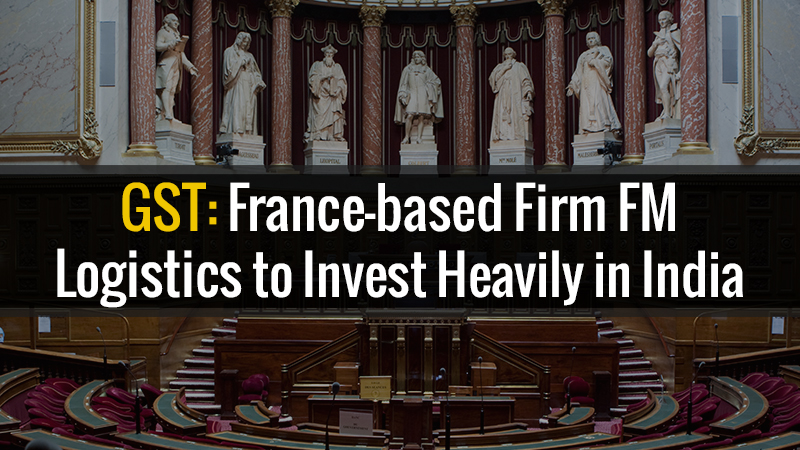
A billion euro company of France named FM Logistics has decided to invest EUR50 million in coming four years in India which will be a major investment by the globally renowned company. The upcoming decision taken by the company is in the viewpoint of India’s decision to implement Goods and service tax in the taxation web.
Stephane Descarpentries, Director-Strategic Projects and Director, operations Asia, FM Logistic, translated some positive words about this decision, “We aim to contribute to a better efficiency of the logistics in India, especially in a post-GST scenario.”
India is the biggest democracy worldwide, sporting an impressive growth rate – the GST adoption will be a turning point in the logistics market,” he added.
“If today most of the major logistics players are Indian companies, DHL being the main exception, tomorrow this landscape will change. That’s the reason why it was key for us to adopt and deploy a long-term strategy : arriving in the market beforehand, taking the time to deeply understand the requirements and being backed by the know-how of our local teams to deploy a new logistics blueprint in the country.
This is only possible because we are a family-owned company and an expert in developing collaborative logistics concepts, in particular, thanks to our concept of large multi-client logistics platforms. India is definitely a promising market for logistics players however very few of them will be able to readily bring efficiency and flexibility in a post-GST scenario. This is what we’ve been working on since March this year,” he said.
However, the FM logistics has been investing EUR150 million as CapEx every year in the global market, so the news is somehow very definitive. The GST taxation regime has been considered a big reformative system for India and thus attracting various lucrative offers from all over the global.
Other global organizations who have shown interest in investing in India are equity firms like Warburg Pincus who will be investing a good amount of USD 125 million (INR 850 crore) in the native company. While Japan’s Nippon Express Company also replied to the email concerned about the investment.









